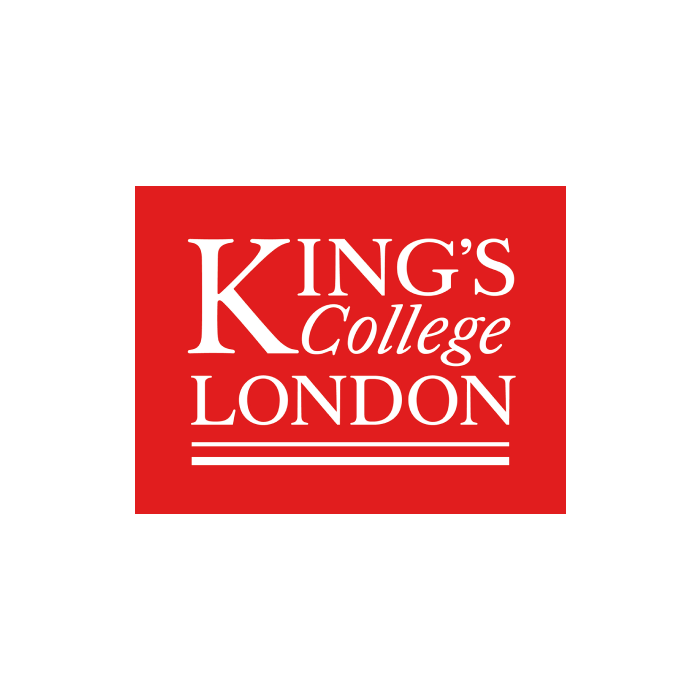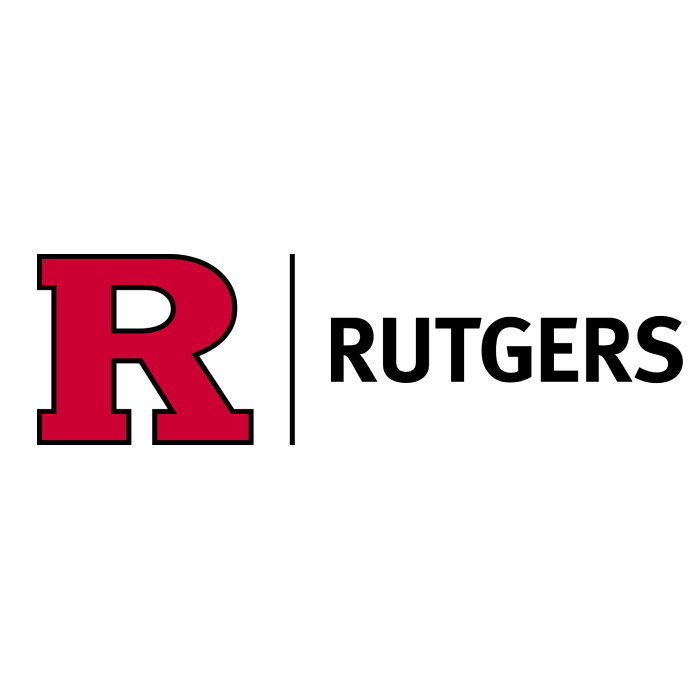Bachelor in Digital Health (Hons)
KPT/JPT(N/482/6/0209)03/2028 | MQA/PSA14380
Commencement
Feb, Apr, Jul & Sep
Degree/Duration
Bachelor in Digital Health (Hons) (IMU):
3 years
Innovate The Future of Healthcare

Secure your future in the medical field by embracing the transformative power of technology. Digital Health presents an unparalleled opportunity for students of all backgrounds to chart a course towards health-related careers that extend far beyond traditional IT pathways. In our programme, you will gain indispensable digital health expertise, empowering you to lead the charge in driving digital transformation within the healthcare sector. Explore the groundbreaking utilisation of Information and Communication Technologies (ICT) that currently define the landscape of digital health, alongside a deep dive into the myriad applications of digital technologies in healthcare.
20% Global Leadership Scholarship
Students enrolling in the Digital Health programme at IMU for the 2025 intakes are eligible for the Global Leadership Scholarship, which offers a 20% reduction in tuition fees. Scholarships are granted at the discretion of the University, and its decisions are final.
Why Study Digital Health at IMU?
01
An Established Private Healthcare University
IMU is Malaysia’s first and most established private medical and healthcare university with over 30 years of dedicated focus in healthcare education. The IMU is placed under the Competitive (Berdaya Saing) category under SETARA 2022 for the third consecutive year.
02
Be a Digital Health Professional
Digital health is recognised as one of the fastest growing economic sectors globally with the high demand for healthcare professionals in this area. The IMU Digital Health programme is the first degree in Malaysia that blends Computing, Data Analytics and Health Sciences components in its curriculum where our graduates will be equipped with an in-depth understanding and know-how of the healthcare field including the healthcare systems, regulations, governance and more, preparing them to be work-ready in this field.
03
Innovative and Agile Curriculum in Digital Health
Digital health is one of the fastest growing economic sectors globally, hence the Digital Health curriculum is embedded with research-led teaching to deliver evidence-based knowledge and practice in the industry. Also, the curriculum structure will be updated to meet the ever-changing IT and healthcare industries’ needs so that our graduates will remain work-ready and employable upon graduation.
04
Build Your Future Healthcare Professional Network
As IMU offers the widest range of healthcare programmes, our students are fully immersed in a vibrant community of students and practitioners from a variety of healthcare fields. This allows for the development of strong friendship amongst peers that will be the foundation of an extensive healthcare professional network upon graduation.
05
Strong Industry Partnerships in Malaysia and Overseas
As Malaysia’s first private medical and health sciences university, IMU has a well-established and strong industry partnerships in the field of healthcare in Malaysia and overseas. This is extended to the digital health area where IMU is bringing in industrial experts in their respective IT fields to be part of the programme’s teaching force. The partnership with the digital experts in the United States and United Kingdom is part of the student’s knowledge and skills development in and to expand their network for career network and professional development.
Entry Requirements
Pre-University Examination
Requirements
| Examinations | | | Requirements | ||||||
|---|---|---|---|---|---|---|---|---|---|
| A-Levels | CDD AND Credit in Mathematics at SPM level or its equivalent (This can be exempted if achieved the same result at Pre-University level) |
||||||||
| STPM | CC AND Credit in Mathematics at SPM level or its equivalent (This can be exempted if achieved the same result at Pre-University level) |
||||||||
| Australian Matriculation |
ATAR 60 AND Credit in Mathematics at SPM level or its equivalent (This can be exempted if achieved the same result at Pre-University level) |
||||||||
| NCEA Level 3 | 50% aggregate AND Credit in Mathematics at SPM level or its equivalent (This can be exempted if achieved the same result at Pre-University level) |
||||||||
| Canadian Grade 12/13 |
60% aggregate in 6 subjects AND Credit in Mathematics at SPM level or its equivalent (This can be exempted if achieved the same result at Pre-University level) |
||||||||
| Unified Examination Certificate (UEC) |
B in 5 subjects AND Credit in Mathematics at SPM level or its equivalent (This can be exempted if achieved the same result at Pre-University level) |
||||||||
| Australian University Foundation Programmes |
50% aggregate or ATAR 60 AND Credit in Mathematics in SPM or its equivalent (This can be exempted if achieved the same result at Pre-University level) |
||||||||
| Indian Pre-University | Average of 50% AND Credit in Mathematics in SPM or its equivalent (This can be exempted if achieved the same result at Pre-University level) |
||||||||
| Ministry of Education Matriculation # |
cGPA of 2.00 AND Credit in Mathematics in SPM or its equivalent (This can be exempted if achieved the same result at Pre-University level) |
||||||||
| International Baccalaureate (IB) |
24 points AND Credit in Mathematics in SPM or its equivalent (This can be exempted if achieved the same result at Pre-University level) |
||||||||
| American High School Diploma with Advanced Placement (AP) |
cGPA 2.00 AND Credit in Mathematics in SPM or its equivalent (This can be exempted if achieved the same result at Pre-University level) |
||||||||
| Foundation Studies # |
IMU Foundation in Science / Foundation in Arts / equivalent cGPA of 2.00 AND Credit in Mathematics in SPM or its equivalent (This can be exempted if achieved the same result at Pre-University level) |
||||||||
| Degree | BSc in related field: cGPA 2.00 AND a credit in Mathematics in SPM or its equivalent (This can be exempted if achieved the same result at Pre-University level) |
||||||||
| Diploma | | | Diploma in Computer Science / Software Engineering / Information Technology / Information Systems with a minimum cGPA of 2.50 and a credit in Mathematics at SPM level or its equivalent (This can be exempted if achieved the same result at Pre-University level).Any other Diploma in Science and technology or business studies. Minimum cGPA of 2.50 may be admitted, subject to rigorous internal assessment process and a credit in Mathematics at SPM level or its equivalent (This can be exempted if achieved the same result at Pre-University level). |
||||||
# The duration of this programme must be a minimum of 1 year in the same accredited institution and foundation in other disciplines are accepted.
CDD
AND
Credit in Mathematics at SPM level or its equivalent
(This can be exempted if achieved the same result at Pre-University level)
cGPA 2.00
AND
Credit in Mathematics at SPM level or its equivalent
(This can be exempted if achieved the same result at Pre-University level)
ATAR 60
AND
Credit in Mathematics at SPM level or its equivalent
(This can be exempted if achieved the same result at Pre-University level)
50% aggregate or ATAR 60
AND
Credit in Mathematics at SPM level or its equivalent
(This can be exempted if achieved the same result at Pre-University level)
60% aggregate in 6 subjects
AND
Credit in Mathematics at SPM level or its equivalent
(This can be exempted if achieved the same result at Pre-University level)
BSc in related field: cGPA 2.00
AND
Credit in Mathematics at SPM level or its equivalent
(This can be exempted if achieved the same result at Pre-University level)
Diploma in Computer Science / Software Engineering / Information Technology / Information Systems
with a minimum cGPA of 2.50
AND
a credit in Mathematics at SPM level or its equivalent
(This can be exempted if achieved the same result at Pre-University level).
Any other Diploma in Science and technology or business studies.
Minimum cGPA of 2.50 may be admitted, subject to rigorous internal assessment process and a credit in Mathematics at SPM level or its equivalent
(This can be exempted if achieved the same result at Pre-University level).
IMU Foundation in Science / Foundation in Arts / equivalent cGPA of 2.00
AND
Credit in Mathematics at SPM level or its equivalent
(This can be exempted if achieved the same result at Pre-University level)
# The duration of this programme must be a minimum of 1 year in the same accredited institution and foundation in other disciplines are accepted.
Average of 50%
AND
Credit in Mathematics at SPM level or its equivalent
(This can be exempted if achieved the same result at Pre-University level)
24 points
AND
Credit in Mathematics at SPM level or its equivalent
(This can be exempted if achieved the same result at Pre-University level)
cGPA of 2.00
AND
Credit in Mathematics at SPM level or its equivalent
(This can be exempted if achieved the same result at Pre-University level)
# The duration of this programme must be a minimum of 1 year in the same accredited institution and foundation in other disciplines are accepted.
50% aggregate
AND
Credit in Mathematics at SPM level or its equivalent
(This can be exempted if achieved the same result at Pre-University level)
CC
AND
Credit in Mathematics at SPM level or its equivalent
(This can be exempted if achieved the same result at Pre-University level)
B in 5 subjects
AND
Credit in Mathematics at SPM level or its equivalent
(This can be exempted if achieved the same result at Pre-University level)
Additional Information:
Candidates with cGPA below 2.50 but above 2.0 with a credit in Mathematics at SPM level or its equivalent may be admitted, subject to a rigorous internal assessment process. Candidate with a credit in computing related subject at SPM or STPM level or its equivalent may be given preferential consideration (Based on MQA programme standards for computing).
English Language Examination
Requirements
| Examinations | | | Requirements | ||||||
|---|---|---|---|---|---|---|---|---|---|
| For Malaysian Student |
| | For International Student |
||||||
| MUET** | Band score of 3; or |
– | |||||||
| IELTS** | Overall band score of 5.5; or |
Overall band score of 5.5; or |
|||||||
| TOEFL iBT** | Overall score of 46; or |
Overall score of 46; or |
|||||||
| Cambridge English: Advanced (CAE)** |
Overall score of 162; or |
Overall score of 162; or |
|||||||
| Cambridge English: Proficiency (CPE)** |
Overall score of 162; or |
Overall score of 162; or |
|||||||
| Cambridge Linguaskill** |
Overall score of 160; or |
Overall score of 160; or |
|||||||
| Pearson Test of English (PTE)** |
Overall score of 51; or |
Overall score of 51; or |
|||||||
| Credit Transfer | | | IELTS Overall band score of 7.0 |
| | IELTS Overall band score of 7.0 |
|||
Overall score of 162
For both Malaysian Student and International Student
Overall score of 162
For both Malaysian Student and International Student
Overall score of 160
For both Malaysian Student and International Student
IELTS Overall band score of 7.0
Overall band score of 5.5
For both Malaysian Student and International Student
Band score of 3
For Malaysian Students
Overall score of 51
For both Malaysian Student and International Student
Overall score of 46
For both Malaysian Student and International Student
The following categories of students* are exempted from the English requirements:
Students who graduated from other institutions where the curriculum is delivered in English Language for example:
Advanced Levels / Australian Matriculation / Australian University Foundation Year / Canadian Matriculation / International Baccalaureate / Foundation in Science / Other Pre-University/ Programmes from Local Higher Education Institutions
*ONLY applicable to those who are completing the entire degree at IMU, Malaysia.
**Applicable to IMU local degree only.
Note: Please note that achieving the minimum Entry and English requirements as stated does not guarantee you admission into any of IMU’s programmes. Please refer to our Student Admissions Policy for more information.
Programme Structure
- Curriculum is reviewed periodically and subject to change.
- MPU modules are compulsory, imposed by the Ministry of Higher Education under the Private Higher Educational Institutions Act 1996 (Act 555).
- Every student must pass all modules as a prerequisite for the awarding of the degree.
Fee Structure
| Fee | Malaysian Student (RM) | International Student (RM) |
|---|---|---|
| Application Fee | 150 | 500 |
| Registration Fee | 850 | 2,000 |
| Refundable Caution Deposit | 1,000 | 1,000 |
- Application fee is payable upon submission of application
- Registration fee and refundable caution deposit are payable upon acceptance of the offer letter issued by the IMU Admissions Office
- As stipulated by the Malaysian Ministry of Education, international students are required to pay Student Visa Administration fee of RM3,000 AND personal bond (depending on nationality) upon registration
- International students will also be required to pay Student Visa Renewal fee every year
- Students must adhere to the Policy on Payment of Fees
- All students are required to pay Student Association Fee of RM40 per semester which will be subject to annual increase
- All fees are subject to currency exchanges rates and exclusive of levy and bridging fees (if any)
- Application fee and Registration fee is non refundable
- All students who are applying for the National Higher Education Fund (NHEF) loans are required to pay their semester fees in FULL by the due date stated in the invoice.
| Malaysian Student Tuition Fees |
International Student Tuition Fees |
|
|---|---|---|
| Bachelor in Digital Health (Hons) (IMU) | 6 long semesters | 6 long semesters |
| RM17,850 per semester | RM19,350 per semester | |
| Total Duration: 3 years | 1 short semester | 1 short semester |
| RM7,500 per semester | RM9,900 per semester |
- 20% Global Leadership Scholarship is available. Scholarships are awarded at the discretion of the University, and its decisions are final.

Our Team
Our academic members are highly qualified and experienced in different disciplines. The academic community of IMU pursues and achieves excellence in a wide range of research activities.
Hear from Our Students and Alumni
Frequently Asked Questions
- Verified copies of your academic qualifications
- Evidence of English language proficiency
- A copy of your MyKad or the identification page of your passport
- DH refers to the use of information and communications technologies (ICT) in healthcare. Synonyms are digital healthcare, health/healthcare informatics, health/healthcare information technology.
- DH technologies use computing platforms, connectivity, software, and sensors for health care and related uses.
- DH refers to the application of computer science and information technology to healthcare with the objective of improving patient care by increasing the effectiveness of treatment and the efficiency of its delivery.
- It is a broad and growing sector. It can cover everything from wearable gadgets to ingestible sensors, from mobile health apps to artificial intelligence, from robotic carers to electronic health records.
- Another objective is to help reducing the number of doctor’s appointments and hospital admissions.
- monitoring and preventing diseases (for example Covid-19), helping patients monitor and manage chronic conditions, lowering the cost of healthcare provision,
- precision medicine: create treatments that are applicable to groups of individuals who meet certain characteristics.
- personalized medicine: individualized treatments that take into account individual variability in genes, environment, and lifestyle for each person.
- mobile health (mHealth): using wearable devices and mobile health apps for monitoring diabetes, high blood pressure, cholesterol, irregular heart rhythms, sleep (for example sleep apnoea)
- telehealth / telemedicine
- drug discovery
- robotics assisted surgery
- allow individuals to improve their lifestyles and maintain good health for longer, and so help reducing the number of doctor’s appointments, emergency room visits and even hospital admissions,
- help identify new illnesses or the worsening of existing ones,
- DH tools could help shorten the length of a disease, or help ease symptoms before they really take hold,
- DH could also reduce the total cost of a person’s healthcare over their lifetime, trimming bills for providers and patients alike,
- many of DH jobs are hybrids, requiring skill sets from different disciplines and which therefore are not typically trained together. For example, a Clinical Analyst would assists clinical staff with IT systems, interpret data and manage patient records. That requires some of the skills both of a healthcare and IT person.
- a DH specialist is usually not on the front lines of healthcare. DH specialists develop the information systems that all sectors of the medical establishment count on to guide their efforts to provide effective, top-quality care as efficiently as possible. They work with other healthcare professionals to design, develop and assess ways to collect, share, standardize and integrate health data and the information systems used to manage it.
- DH specialists also look beyond the collection and maintenance of data. Their jobs may require them to analyse the data to uncover more effective ways to deliver care or to examine the system itself to pinpoint better ways to get the information doctors and nurses rely on to them more efficiently.
Read Our Latest News & Stories
A Word From The Programme Director
A Word From The Programme Director
Have Questions? Ask Us
Explore Undergraduate Programmes Offered

Explore Undergraduate Programmes Offered
Taught Programme
 2024.png)














